Get Synthetic Rubber Roof Installation in Boston, MA
Local contractors in Boston, MA, can install synthetic rubber roofs to repair leaks, improve durability, and handle projects like commercial buildings, flat roofs, or residential upgrades.
Synthetic rubber roof installation is a practical option for property owners in Boston, MA seeking durable and reliable roofing solutions. This material offers excellent resistance to weather-related wear, making it well-suited for the region’s diverse climate. Whether upgrading an existing roof or installing a new one, exploring local contractors who specialize in synthetic rubber roofing can provide valuable insights into the benefits and best practices for your property. By comparing different service providers, property owners can make informed decisions that align with their specific needs and project goals.
For those planning roofing projects in Boston, understanding the options available is an important step toward achieving a long-lasting roof. Local contractors experienced in synthetic rubber installation can help evaluate the unique requirements of each property, ensuring the chosen solution offers both performance and value. Keep exploring to learn more about how these services can support your property’s protection and help you find the right professionals to handle the work.
- Commercial buildings - synthetic rubber roof installation may be needed for large retail or office spaces in busy urban neighborhoods.
- Industrial facilities - local contractors can help when upgrading or replacing roofing systems on manufacturing plants or warehouses.
- Residential homes - homeowners in suburban areas might seek synthetic rubber roofing for durability and weather resistance.
- Apartment complexes - property managers may contact local service providers for seamless roof replacements across multiple units.
- Healthcare facilities - clinics and hospitals requiring reliable, long-lasting roofing solutions can connect with experienced local contractors.
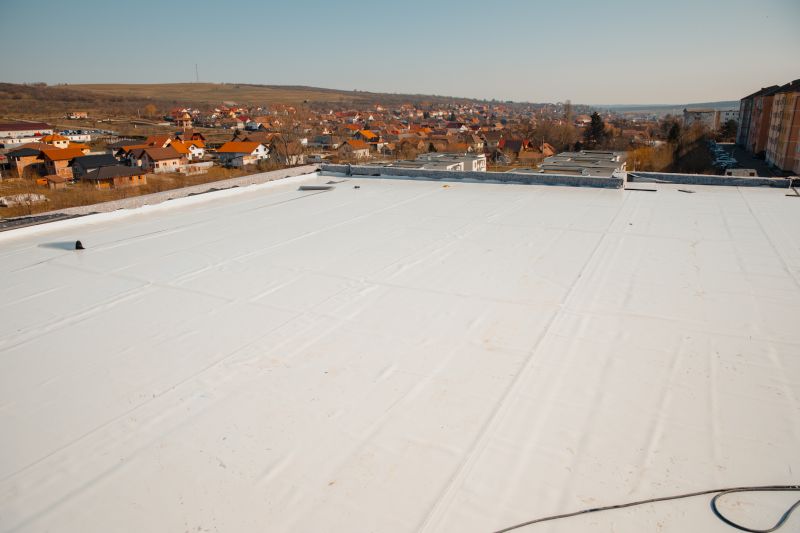
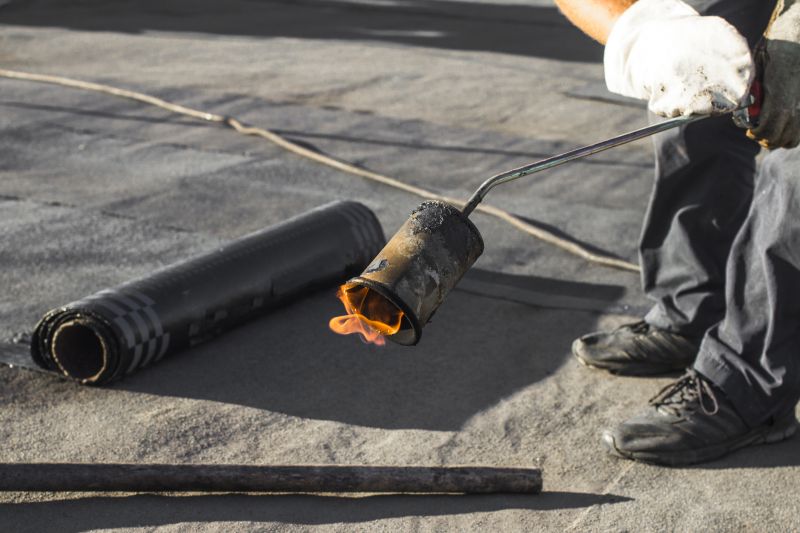
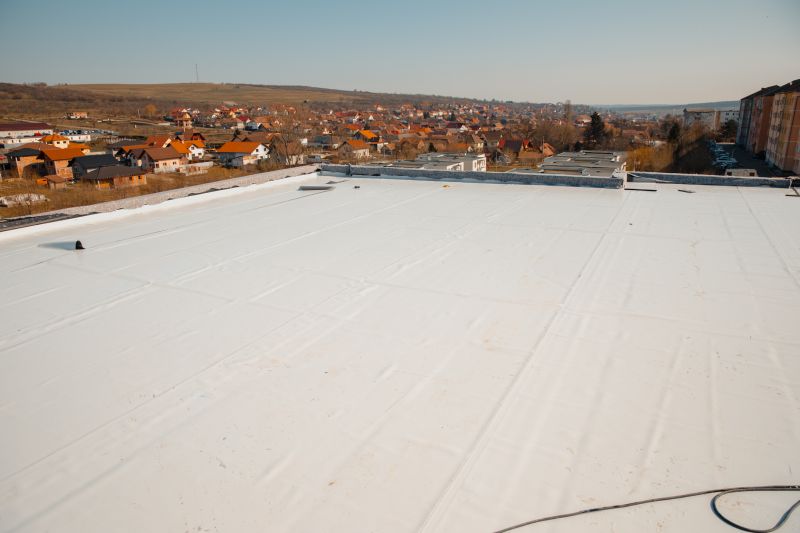
Synthetic rubber roof installation involves replacing or installing a durable, seamless roofing surface made from high-quality synthetic rubber materials. This type of roofing is designed to provide a long-lasting, watertight barrier that protects properties from water infiltration, leaks, and weather-related damage. The process typically includes preparing the existing roof surface, installing insulation if needed, and then expertly applying the synthetic rubber membrane to ensure a secure and uniform coverage. Skilled contractors use specialized techniques to ensure the new roof is properly sealed and capable of withstanding the elements over many years.
This service addresses common roofing problems such as persistent leaks, roof deterioration, and cracking caused by age, weather exposure, or structural shifts. Synthetic rubber roofs are particularly effective at handling ponding water, which can be a challenge for traditional roofing materials. They also resist damage from UV rays, ozone, and temperature fluctuations, making them a practical choice for properties that experience harsh weather conditions. Installing a synthetic rubber roof can help prevent costly repairs and improve the overall durability of the roofing system.
Properties that typically benefit from synthetic rubber roof installation include commercial buildings, industrial facilities, and residential flat or low-slope roofs. These roofs often face unique challenges such as standing water or frequent temperature changes, making a seamless, flexible roofing membrane an ideal solution. Additionally, structures with existing roof issues or those seeking a long-term, low-maintenance roofing option may find this service especially advantageous. It is suitable for buildings where a durable, waterproof surface is essential to protect the interior and extend the roof’s lifespan.
Homeowners in areas like Boston, MA, and nearby communities may consider synthetic rubber roof installation when their current roofing shows signs of aging or damage, or if they want to upgrade to a more reliable, weather-resistant surface. This service is also beneficial for properties with flat or low-slope roofs that are prone to leaks or ponding water. By connecting with experienced local contractors, homeowners can explore options tailored to their specific needs, ensuring a secure and resilient roofing system that helps safeguard their property against the region’s varied weather conditions.
The overview below groups typical Synthetic Rubber Roof Installation projects into broad ranges so you can see how smaller, mid-sized, and larger jobs often compare in Boston, MA.
In many markets, a large share of routine jobs stays in the lower and middle ranges, while only a smaller percentage of projects moves into the highest bands when the work is more complex or site conditions are harder than average.
Smaller Repairs - Minor patching or sealing of synthetic rubber roofs typically costs between $250 and $600. Many routine repairs fall within this range, depending on the extent of the work needed. Fewer projects reach the higher end of this spectrum.
Partial Replacement - Replacing sections of a synthetic rubber roof can range from $1,000 to $3,000 for most properties. Larger, more complex partial replacements may push costs higher, but most projects stay within this middle band.
Full Roof Replacement - A complete synthetic rubber roof installation generally costs between $5,000 and $12,000. Many full replacements in Boston and nearby areas fall into this range, with larger or more intricate projects reaching above $12,000.
Additional Costs - Extra expenses such as removal of old roofing, permits, or specialized labor can add several hundred to a few thousand dollars to the overall project. Local contractors can provide detailed estimates based on specific property needs.
Actual totals will depend on details like access to the work area, the scope of the project, and the materials selected, so use these as general starting points rather than exact figures.
Flat Roof Repairs - Contractors skilled in synthetic rubber roofing often handle flat roof repairs, requiring similar planning and waterproofing techniques.
EPDM Roofing Installations - Installing EPDM roofing involves comparable materials, tools, and surface preparation as synthetic rubber roof projects.
Commercial Roofing Projects - Many commercial roofing jobs utilize synthetic rubber membranes, making the skills transferable for service providers working on large-scale installations.
Roof Waterproofing Services - Waterproofing existing roofs with membrane systems shares techniques and materials used in synthetic rubber roof installation.
Roof Replacement Services - Replacing old roofs with modern membrane systems involves similar planning, surface prep, and installation processes.
Roof Coating Applications - Applying reflective or protective coatings to roofs often requires knowledge of membrane materials and surface sealing, akin to synthetic rubber roofing work.
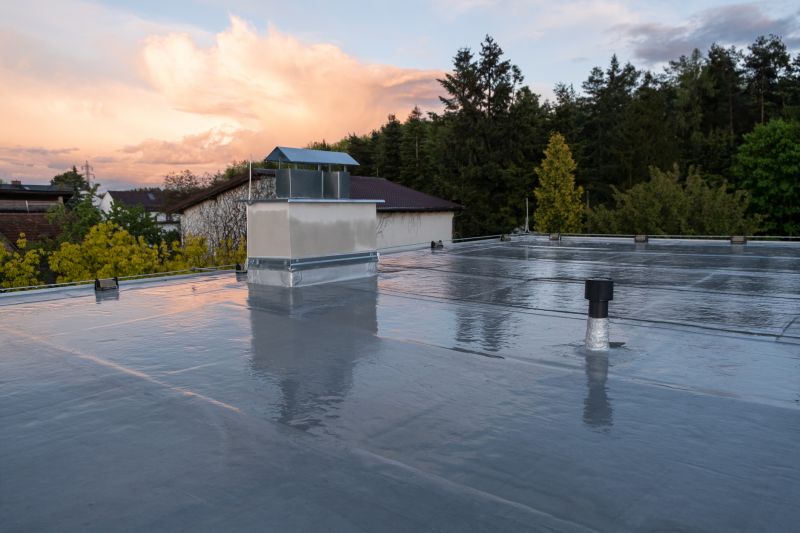
When evaluating contractors for synthetic rubber roof installation, it’s important to consider their experience with similar projects. Homeowners should inquire about the types of roofing jobs they have completed, especially those involving synthetic rubber materials. A contractor with a proven track record of handling comparable installations can offer insights into potential challenges and proven solutions, helping ensure the project aligns with expectations. Reviewing a contractor’s portfolio or asking for examples of past work can provide a clearer picture of their expertise and familiarity with the specific requirements of synthetic rubber roofing.
Clear, written expectations are essential to a smooth installation process. Homeowners should seek detailed proposals that outline the scope of work, materials to be used, and the steps involved in the project. Having these details in writing helps prevent misunderstandings and ensures everyone is aligned on the project’s goals. It’s also helpful to discuss warranties, cleanup procedures, and any potential additional costs upfront. Clear communication through written documentation can serve as a reference throughout the project, fostering transparency and trust between the homeowner and the service provider.
Reputable references and effective communication are key factors when choosing a local contractor. Homeowners should ask for references from previous clients who had similar work done and follow up to learn about their experiences. Good communication from the start-such as responsiveness, clarity in explanations, and willingness to answer questions-can make the project run more smoothly. Engaging with service providers who demonstrate professionalism and transparency can help ensure the installation process is well-managed and meets expectations. It’s important to remember that this site introduces homeowners to local options, serving as a resource to connect with qualified contractors, rather than performing the work itself.
Property owners in Boston, MA use Synthetic Rubber Roof Installation services for practical projects around their homes and businesses. This guide focuses on everyday jobs and straightforward project options.
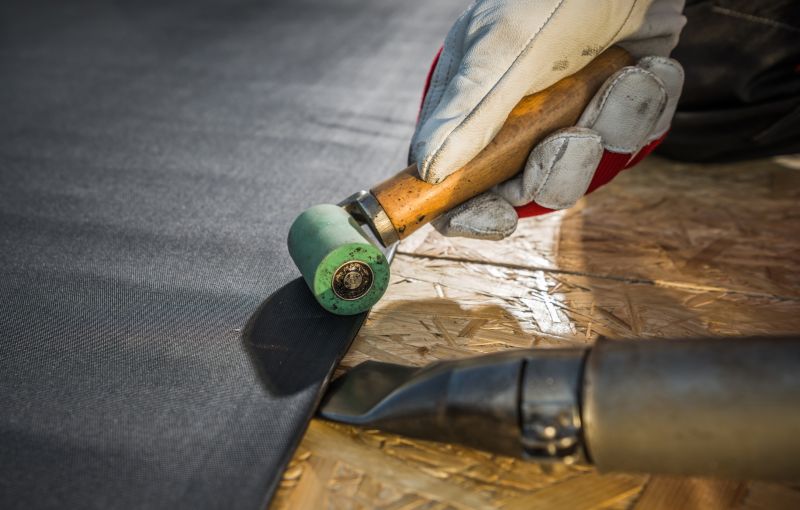
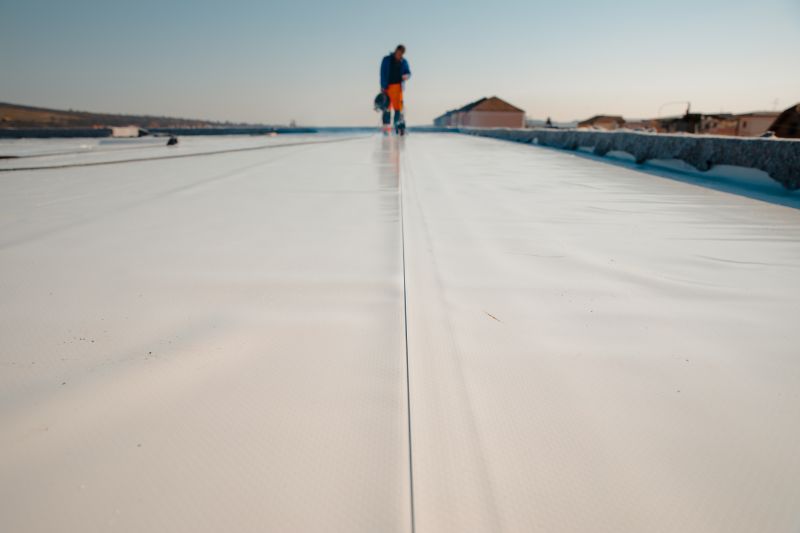
Synthetic rubber roof installation is often needed when property owners in Boston experience issues with their existing roofing systems, such as leaks, cracking, or general wear and tear. Many local contractors are called upon to replace or upgrade roofs to ensure durability against the city’s weather conditions, including heavy snow and rain. Homeowners and business owners might seek out these services to improve energy efficiency, extend the life of their roofs, or simply address damage caused by seasonal weather fluctuations.
In addition, property owners may turn to local service providers for new installations on commercial buildings, garages, or residential homes that require a reliable, long-lasting roofing solution. Synthetic rubber roofs are valued for their flexibility and resilience, making them a practical choice for flat or low-slope roofs common in Boston-area properties. Connecting with experienced local contractors can help property owners find the right solution to protect their buildings and maintain their property’s value.
What is synthetic rubber roofing? Synthetic rubber roofing is a durable, flexible roofing material made to mimic traditional rubber while offering enhanced weather resistance and longevity for commercial and residential roofs.
How are synthetic rubber roofs installed? Local contractors typically install synthetic rubber roofs by preparing the surface, laying down the membrane, and sealing the edges to ensure a waterproof and seamless finish.
What are the benefits of choosing synthetic rubber roofing? Synthetic rubber roofing provides excellent weather resistance, flexibility for roof movement, and a long-lasting protective layer for various building types.
Can synthetic rubber roofing be repaired if damaged? Yes, local service providers can repair synthetic rubber roofs by patching or sealing damaged areas to restore their waterproof integrity.
Is synthetic rubber roofing suitable for all roof types? Synthetic rubber roofing is versatile and can be installed on flat, low-slope, or complex roof structures with the help of experienced local contractors.
Synthetic Rubber Roof Installation - Property owners can enhance the durability of flat or low-slope roofs on commercial buildings with synthetic rubber roofing systems.
Synthetic Rubber Roof Installation - Homeowners looking to replace an aging roof can consider synthetic rubber options for improved weather resistance and longevity.
Synthetic Rubber Roof Installation - Businesses planning to upgrade their roofing to better withstand heavy rain and temperature changes may explore local contractors specializing in this service.
Synthetic Rubber Roof Installation - Property managers can ensure minimal disruption during roof replacement by working with experienced service providers familiar with quick and efficient installations.

If you are thinking about Synthetic Rubber Roof Installation for a property in Boston, MA, this guide is meant to help you understand the work, the typical project types, and how different options might fit your plans.
When you are ready, you can use the quote form on this page to share a few details about your project. From there, local pros can review the basics and respond with options that match what you have in mind.



